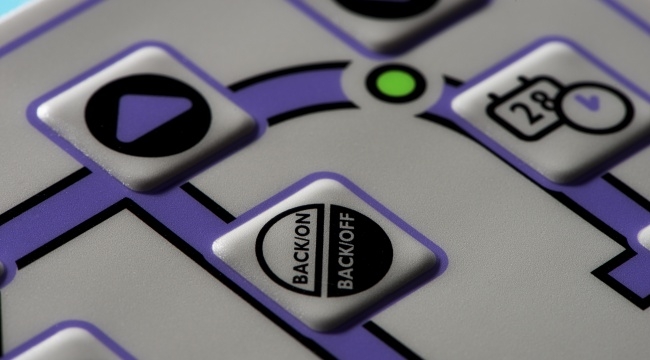Paul Bennett, managing director of manufacturing business Fascia Graphics discusses how the graphic overlays and membrane keypads supplier gained traction in the market.
When did you start the business and why?
Since the age of 14 when I held a part-time job after school, I have worked in the screen print, QA or stencil industry. As an operations director working in the sector, I always held an ambition to set-up my own business. Around this time, I was fortunate enough to meet my now business partner, Ernie Griffin. I quickly recognised that we had complimentary skills. Ernie with his experience as a finance director/company secretary, and mine in operations.
We launched Fascia Graphics at the end of the 90’s recession (1994) with a customer base of 40 and a first year turnover of £130,000. While other manufacturers in the industry have receded, we’ve continued to expand and Fascia is now a £4 million turnover business, and the market leader for the production of membrane keypads and graphic overlays in the UK’s printed graphics industry.
For over 20 years, our ethos has remained consistent: to be a British manufacturing business of the highest quality products, to offer outstanding customer service, to be competitive both domestically and globally, and to continually improve.
Talk about the early days of the manufacturing business.
A big success in our early days was to win a lucrative labels contract with Dyson. Fascia Graphics’ Chippenham base is in very close proximity to Dyson’s Malmesbury headquarters, so when starting out, having such a major customer on the doorstep really supported the early stages of growth. However, the Dyson work was increasing at such a rapid rate, it started to take up a much bigger share of annual revenues. We therefore took the decision to reduce the risk of our reliance on one major customer, and traded ourselves out of the Dyson contract.
Today, we work with around 1,000 customers, and while the core of the business is still the design and manufacture of membrane keypads, graphics overlays, labels, and other industrial graphic applications, we have also expanded into other areas such as large format digital printing, reel-to-reel printing, lithographic, hot-foil, and the etching and anodising of nameplates and other metal-based products.
What was the single ‘turning point’ moment for the business and its revenues?
In 2005, we made a major investment by moving into a 13,000-square foot factory, after being previously spread across several business units. This new factory was quickly extended by a further 2,000 square feet due to an increase in customer demand, and it has provided our business with the space to make a string of technology investments that has driven efficiencies, and at the same time, improved product quality.
In 2012 we made the decision to invest £350,000 in a fully automatic Sakurai servodriven cylinder press. The line required bespoke modifications to handle the highly sensitive substrates being processed and once this work was completed, we became the first industrial graphics printer in the UK using the servo-driven technology. Situated in a positive pressure clean room the complete line covered nineteen metres and quickly revolutionised the production process.
In addition to the increased productivity and product quality, the installation of the line also reduced the company’s carbon footprint. During the specification process the drying solution was designed to utilise heat exchange units, drastically reducing the energy consumption. The installation was such a success that twelve months later, we commissioned a second, identical line. This ground-breaking solution is typical of our forward-thinking approach to manufacturing. Whilst many companies have chosen to consolidate and some even to retreat, we have continued to invest heavily in our technology and processes.
From that point, how did your business scale?
2005 was a major turning point, but in 2010 the establishment of a dedicated export division helped us capitalise on the growth in emerging markets, and meet the growing demand of orders placed by our major global blue chip customers. As a result, we have since seen an increase in orders from the US, Asia and across Europe, particularly over the last 12 months. Having this division firmly established when sterling slumped post Brexit, put our business in a very strong positon to increase our overseas sales.
How can a manufacturing business owner learn from your success?
Initially, I would say stick to what has made you a success. Ever since we were established we’ve prided ourselves on operating with industry-leading turnaround times, so if a customer needs a product in a certain place at a certain time, we will do everything we can to ensure this order is with them. However, without the latest technology investments, this just would not be possible.
Also, always have a dedicated approach to continuous improvement. This not only helps our customers, it can also lead to are systems and processes being much more efficient.
And, while many of the improvements we have made are based around improving the customer experience, we have not forgotten our social and ecological responsibility. In direct contrast to the increased productivity was our reduced energy consumption and carbon footprint. Not only did we utilise heat exchange units within the Sakurai lines but we have worked with ‘SMARTech Energy’, specialists in energy optimisation and waste reduction.
SMARTech developed a strategy that included changing the factory lighting, optimising all machinery and motors, installing inverters to air handling systems and closely balancing the incoming power supply. The result is a further 20 per cent annual reduction in our energy consumption, further evidencing our commitment to continual improvement and waste reduction across the board.





